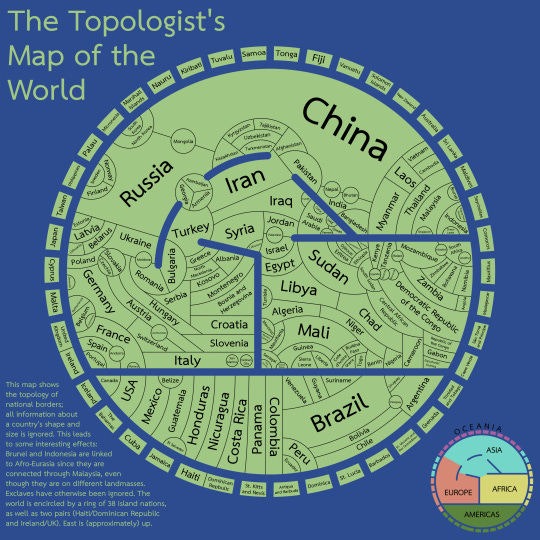Links For July
[Remember, I haven’t independently verified each link. On average, commenters will end up spotting evidence that around two or three of the links in each links post are wrong or misleading. I correct these as I see them, and will highlight important corrections later, but I can’t guarantee I will have caught them all by the time you read this.]
1: Previous research had suggested that you might be able to treat depression by using Botox to literally paralyze the facial muscles that make you frown. Two teams recently did meta-analyses of the research and came to different conclusions. Or rather, they came to the same conclusion - it has a really really big effect size - but they interpreted it differently: one team says it must be super great, another team said something must be wrong with the studies. Now the second team has responded to the first, in an article called (wait for it) Claims About The Effect Of Botulinum Toxin On Depression Should Raise Some Eyebrows.
2: Poll, seen here: surprisingly many Brits want a permanent lockdown regardless of COVID:
If any commenters here would describe themselves as in this group, I’m interested to hear your reasoning. [Edit/update from commenters: as with all polls, this changes a lot depending on how you frame the question]
3: A long Twitter thread giving a great explanation of some of the issues in psychotherapy research. One of the most important is that it’s really hard to give placebo psychotherapy, so most experimenters don’t bother and just compare to people on the “wait list” for their treatment, but this isn’t an adequate control and you really do have to give placebo psychotherapy for your study to get good results.
4: GPT-3 writes an Ace Attorney case, self-recommending:
5: This month in etymology: did you know that some linguists believe that “heathen” (which originally had an adjective form “heathenic”) comes from the word “ethnic” (in the same ethnic=foreign sense as “ethnic food”)? But it might also have just been a person who lived on a heath.
6: Congratulations to SSC/ACX reader and commenter Tom Chivers, who recently won a British Science Journalist of the Year award. My own encounter with Tom was that he once wrote a book about the rationalist community, and asked to informally talk to me and my at-the-time girlfriend. My girlfriend was trying to decide whether or not she was ready to have children, so she got one of those robot babies that they use in school health classes to teach you how hard having an infant is. And she didn’t want to leave it alone or it would start crying and grade her as unready to be a mother. So she took it to the interview, and obviously Tom noticed it, and we had the fun task of convincing him that we were normal people who just happened to be carrying a robot baby around, for reasons that were totally unrelated to us being in something that we were trying to make clear to him was NOT a robot cult. He was very understanding and didn’t dwell on it too much in his book, which was very gracious of him. Anyway, you can read his science reporting here.
7: If you liked the recent post on polygenically-selected babies, you might also like Steve Hsu’s summary of recent research, plus this panel discussion with a group of experts (including Dr. Smigrodzki, father of the first polygenically-selected child).
8: This month in Chinese propaganda (courtesy of Xinhua News’ Twitter account)
9: Dominic Cummings, formerly a top adviser to the British government, now has a Substack (…Domstack?) where he talks about the UK coronavirus response and his many other opinions. The “Ask Me Anything” threads are a particular gem - it’s hard for me to think of other examples of people with experience of the top levels of power being so accessible and willing to talk about it with randos.
10: RIP antivirus pioneer John McAfee, who died of an apparent prison suicide, two years after publicly announcing that he would never commit suicide in prison and that if it looked like he did then he’d been murdered, and was so concerned about this that he even got a tattoo to this effect. He will be remembered for his software, his larger-than-life lifestyle, and every time I think of this tweet:
11: Finally, a politician is listening to my pleas to center de-college-ization as an important issue. Joe Kent, a Republican running for Washington’s 3rd congressional district, has said that “the government must open jobs to those with non-traditional educational backgrounds” and pledged that:
When elected, I will introduce legislation that will require every government job listing to only require a college degree if it is technically necessary - for example, mathematics, engineering, geology, etc - and consider alternative workforce experience wherever applicable. Further, I will set aside one third of the jobs on my congressional staff for those who do not have a traditional educational background, and one-third for those from the district. And I will advocate for my fellow representatives in Congress to do the same.
Good luck, Mr. Kent! (though as usual he is still terrible in other ways)
12: The Topologist’s Map Of The World (source):
13: One of the best parts of writing my lockdown effectiveness post was learning about Corona Game, an educational game where you try to set COVID policy for the Czech Republic. It recently went viral on Hacker News, and there were lots of great comments about it, including some from the authors. Related: Matt Shapiro (who comments here as PoliMath) adds to the discussion of costs and benefits of COVID lockdowns.
14:Shinigami Eyes is a browser add-on which highlights users on social media and comments sections who have a history of either pro-transgender or anti-transgender comments (it learns from user reports, but it must have a big userbase because friends who use it say it’s pretty accurate about lots of people). A small step toward our filtered future - though of course the real fun starts once we have augmented-reality goggles and can give red vs. green auras to people you meet on the street based on their past comments about trans issues. Actually, no, the real killer app will be glasses that can make people look either more or less physically attractive based on how closely they share your political views.
15: From the subreddit: children born pre-term have notably worse health and lower IQ than those born after a full pregnancy. There are lots of ways to prevent pre-term birth, including progesterone therapy and literally just sewing the cervix shut. So why don’t we do these more often, asks a writer who realistically probably does not himself have a cervix. Some really great comments, including this one by an OB/GYN who explains the current thinking around this topic (progesterone doesn’t work, cervical sewing has too many risks to be done as a universal prophylaxis).
16: Seen here, presented without comment:
17: David Friedman: no, Adam Smith didn’t share all of your modern progressive opinions. Probably people are just getting him confused with someone who did, like Jesus.
18: Related: H.P. Lovecraft on Hayek
19: Holden Karnofsky, co-founder of GiveWell and CEO of the Open Philanthropy Project, now has a blog, Cold Takes, on “futurism, macrohistory, applied epistemology and ethics, [and] sometimes sports”. Getting to hear from Holden is always a privilege, usually one reserved for people at effective altruism organizations or conferences, and it’s exciting to see he’ll be sharing his thoughts more widely.
20: This Twitter thread on delegitimation of the high school bully argues that school bullies have faded from the public consciousness compared to their heyday in the late 20th century, and that’s because awareness campaigns / zero tolerance policies worked, and that’s partly because even school officials used to treat bullies as pretty cool and basically in the right, and we managed to successfully recast them as really bad. Interested to hear if this matches others’ experience. I am constantly mystified by which awareness campaigns work extraordinarily well (eg drunk driving, maybe bullying?) vs. fail (eg premarital sex, drugs, etc)
21: Probably inspired by the recent assassination of the Haitian president, there’s been some interesting recent discussion on divergence between Haiti and the Dominican Republic - same GDP per capita until ~1960, but now Dominican Republic is about 8x higher. Start with Noah Smith here, then Tyler Cowen here, then Lurking_Chronicler_2 here. One reason people find this question so interesting is that it feels like it should be possible to pinpoint the difference to policy-like-variables alone - since Haiti and the DR were doing so similarly for so long, it doesn’t seem like culture or genetics should play a role. I’m not sure this is really that airtight - one of Noah’s commenters points out that even when Haiti and DR had identical GDPperCs, DR life expectancy was ten years longer, so maybe there are hidden depths. It’s tempting to attribute all of Haiti’s terrible second-half-of-the-20th-century to the Duvaliers, but it’s still a minor mystery why DR has done so much better than the rest of Latin America. Tyler Cowen offhandedly mentions really good use of special economic zones. I’d like to learn more about that - some of the people who are always talking about Shenzhen and Dubai should write about it sometime.
23: Like everyone else, I read the Buzzfeed piece claiming that the Michigan governor kidnapping plot was, let’s say, “helped along” by the FBI an inappropriate amount. I came out of it thinking that these were some pretty scary dudes who were the type of people who might kidnap governors, but that it seemed possible they would never have gotten around to starting any particular governor-kidnapping operation if not for FBI entrapment. I’m not sure what to think about that - as a liberal, I want to protect the norm of not punishing people for crimes unless they definitely actually came up with the plan to commit them themselves. But I have trouble feeling as outraged as I’d like to about a plan to get potential-governor-kidnappers off the streets faster by convincing them to commit to an actual governor-kidnapping on some specific date that the FBI can arrest them for. And I think about things like how many people get their bikes stolen in the Bay Area, and how police never do anything about it, and how one of the proposals is to plant honeypot bikes in easily-watchable areas and arrest the people who steal them until maybe eventually San Franciscans get the message that bike-stealing can have negative consequences - and this has a lot to recommend it over just letting bikes get stolen (or governors get kidnapped) every so often. Anyway, my favorite part of the article was reading about how much all the governor-kidnapper militia people cared about making sure nobody thought they were racist, even while they were plotting domestic terrorism. This definitely feels like a metaphor for life.
24:
2,712Likes498Retweets](https://twitter.com/balajis/status/1417747653048233984)
25:How Asia Works (reviewed here) argued that agricultural land reform (ie redistributing land from large landholders to peasants) was an important part of the industrializing process that helped East Asia become First World. While reviewing it, I wondered if pushing land distribution might be an effective altruist intervention. Now the organized EA movement (in the form of the increasingly prominent Rethink Priorities group) has published an analysis of it as a cause area. I interpret their conclusion as being that it’s not entirely clear that smaller farms produce more, and although it’s possible that they do, land redistribution is so politically intractable that it probably isn’t worth focusing on this too hard unless an unexpected opportunity comes up.
26: What should we make of Amazon’s payment acceptance team advertising a job opening for a “Digital Currency And Blockchain Product Lead”?
27: Seen on nostalgebraist’s Tumblr:
Among the many great little stories in Jonathan Rose’s book The Intellectual Life of the British Working Classes , one that has always stuck in my mind concerns a guy who read the Bible on his own, with dedication but without any external guidance.
On the basis of the other books he’d read, he assumed the Bible was a chronological narrative in which each section happened after the previous one. So when he got to the gospels, he assumed that they actually happened sequentially : that Jesus was in a sort of Groundhog Day time loop in which he experienced slightly different versions of the same set of events four different times, dying at the end of each version. (I guess it would make sense that final loop was John, which is significantly different from the other three.)





 balajis.com @balajisIt used to be that only heavily armed nuclear weapons states had computers. Then rich people had them. Then everyone had them. It used to be that only heavily armed nuclear weapons states could go to space. Then rich people could. Then…
balajis.com @balajisIt used to be that only heavily armed nuclear weapons states had computers. Then rich people had them. Then everyone had them. It used to be that only heavily armed nuclear weapons states could go to space. Then rich people could. Then… 